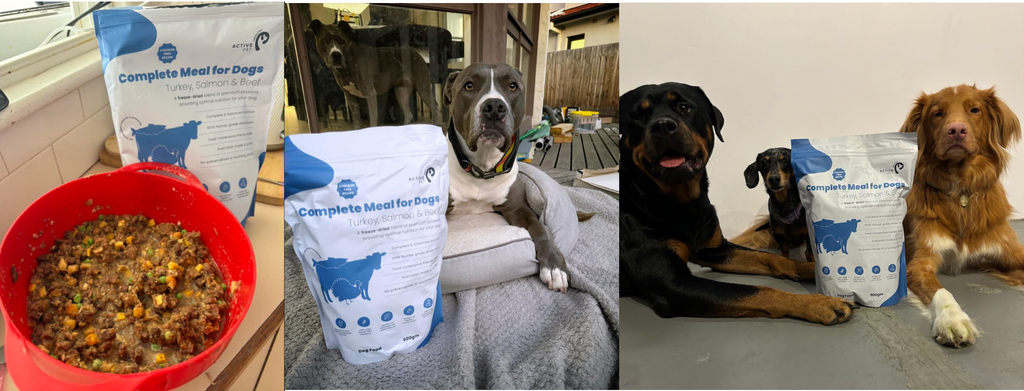
How to keep your dog safe this Easter
Easter is nearly here which means there is LOTS of chocolate around and this can be really dangerous for our pets
It’s SUPER important to remember though, that our pets are not able to eat the same treats as us and it can result in serious health complications and death.

Foods you should NEVER feed your dog
🚫Chocolate is a big no for dogs and cats. It contains theobromine which is unable to be processed by their bodies, leading to a range of severe, and potentially deadly, issues.
🚫Foil wrapping can result in intestinal blockages, often requiring surgical intervention.
🚫Hot cross buns can be deadly to dogs as they contain dried fruit. Grapes, sultanas and raisins are actually toxic to dogs, even if consumed in small quantities. Signs of toxicity may include vomiting, salivating and abdominal pain, and lead to kidney failure or potentially death.
Why is chocolate toxic for pets?
Chocolate contains both caffeine and a chemical called theobromine.
Both of these act as stimulants which cannot properly be metabolised by your pet, and cause a variety of symptoms such as increased heart rate, seizures and tremors – all of which can be fatal. In addition, chocolate is also high in fat and sugar, which can cause pancreatitis and stomach upset in many pets.

How much chocolate is poisonous?
As a general rule, the smaller the pets, the smaller the amount of chocolate is needed to cause toxicity (and vice versa). However, each animal is different and in some cases, a large pet could only need a very small amount of chocolate for them to become sick. Because of this, we recommend taking your pet to the vet if they eat any chocolate.
Darker chocolate poses a greater risk, as it contains a higher amount of cocoa and therefore more theobromine. Fruit and nut chocolate is especially dangerous as it contains raisins, which are also toxic to pets.
What are the signs of chocolate toxicity?
Symptoms of chocolate poisoning can take a few hours to develop, and vary depending on the amount and type of chocolate your pet eats. Early signs include:
- vomiting
- diarrhoea
- panting
- increased thirst
- This can progress to tremors, seizures and heart failure, particularly in older pets or those with existing heart conditions.
If you know or suspect that your pet has ingested chocolate, or notice any of these symptoms, take them to your vet straight away.
Tips for a pet-safe Easter
- Keep all Easter eggs and decorations that could pose a choking hazard out of your pets’ reach
- If you’re having an Easter egg hunt, count the eggs before you hide them or keep a record of where they are, to make sure that your furry friend won’t find any leftovers at the end of the hunt. Even better, lock your pet into a safe room so they aren’t able to access the chocolate.
- Never feed your pet Easter eggs or other treats like hot cross buns. Instead, give them a pet-friendly Easter treat (try our YUMMY and healthy freeze dried turkey treats)




